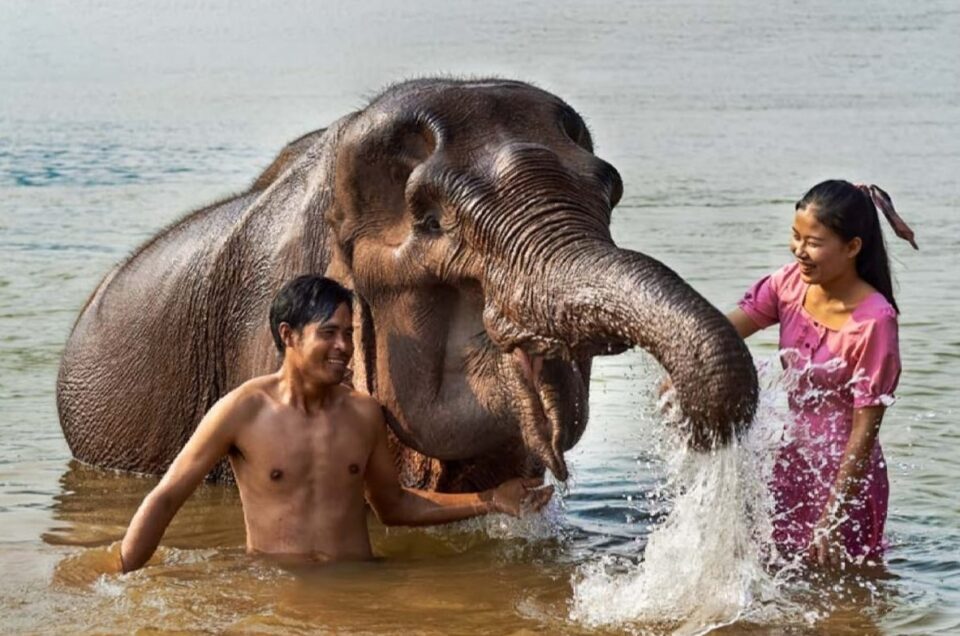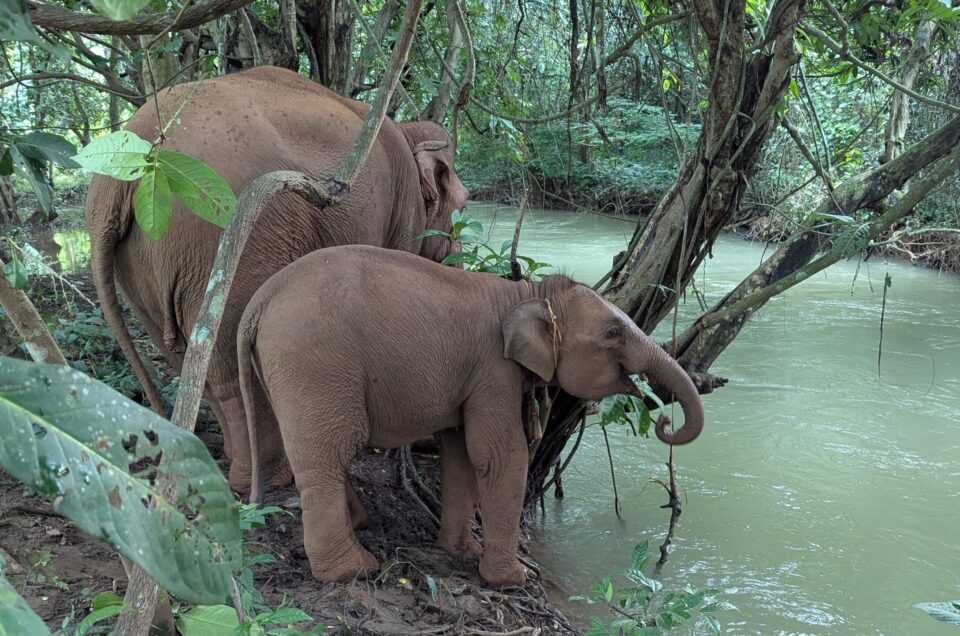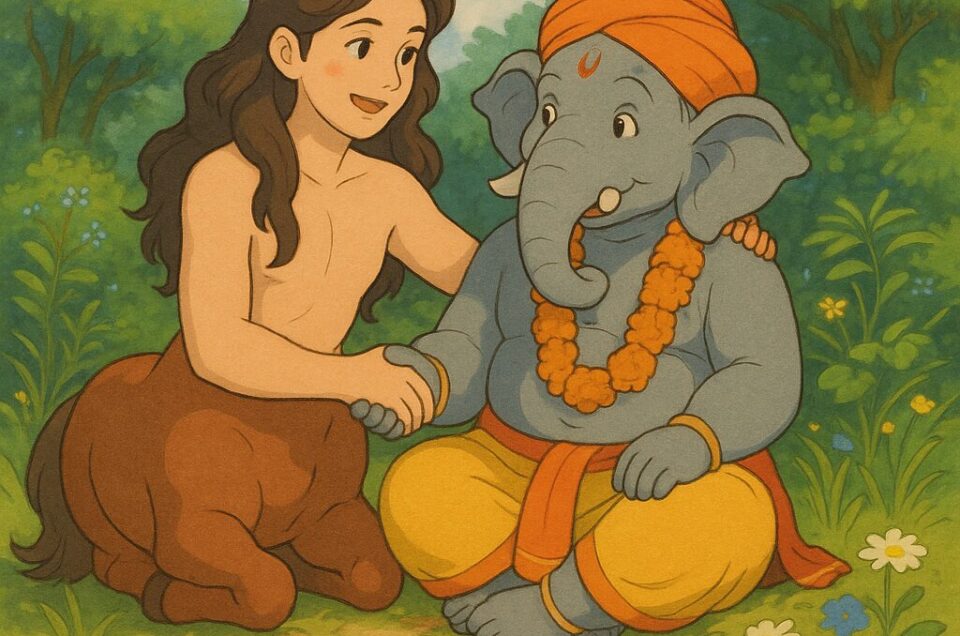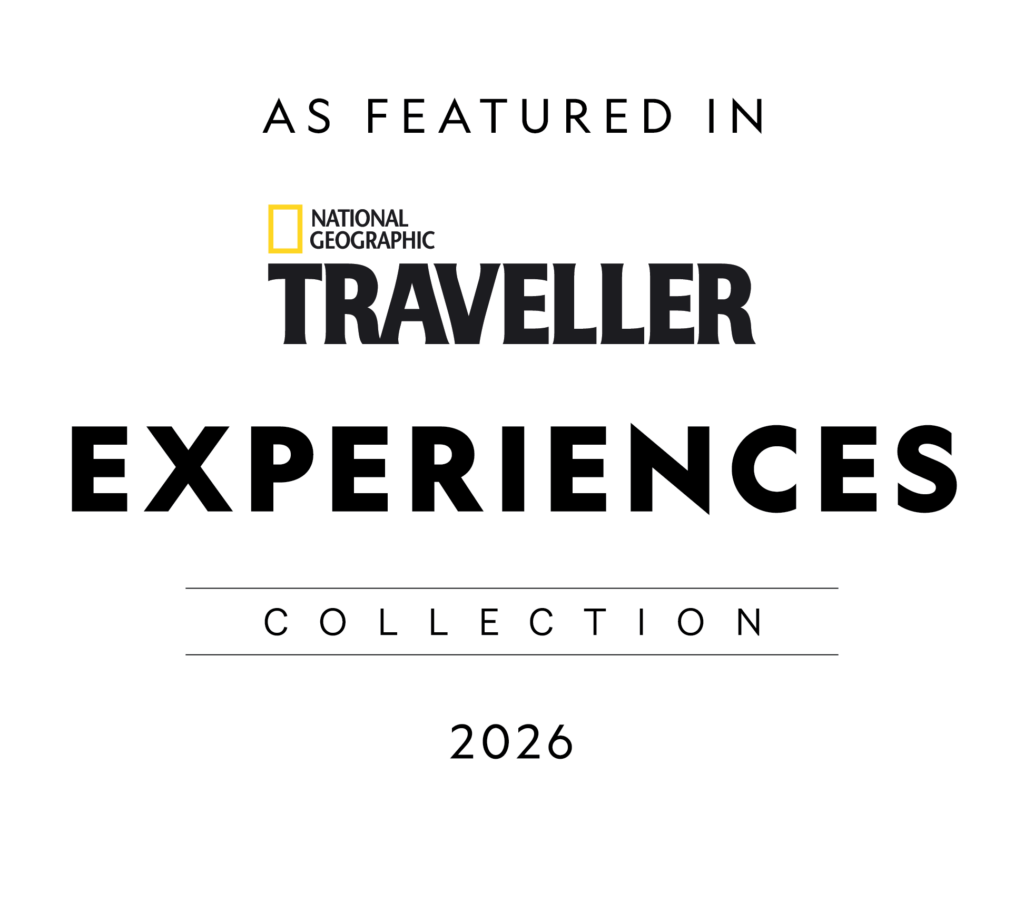At Manifa Elephant Camp, becoming with elephants means engaging in an ongoing process of mutual shaping, understanding, and adaptation between humans and elephants. It’s not just about living side by side—it’s about growing together through daily practices of care, attention, and relationship.
Co-shaping Life Through Long-Term Companionship
At Manifa Elephant Camp, we begin not with control, but with relationship. Elephants are not tools to be used or spectacles to be consumed—they are sentient, social beings who think, feel, and remember. We approach them not as objects of management, but as companions in a shared world. Our philosophy is grounded in the idea of “becoming with,” a way of living that recognizes how humans and elephants grow in connection with one another.
This means that our mahouts—many of whom come from families with generations of experience—do not simply direct elephants. They live with them. They walk together, work together, rest together. They learn to read body language, notice small changes in mood or health, and adjust their behavior in response. In turn, elephants learn the voices, gestures, and patterns of their human companions. Over time, both parties are changed—not through force, but through familiarity and trust.
This process of becoming with is slow and subtle. It cannot be rushed. It depends on presence, patience, and attentiveness. Every elephant has a personality. Some are playful, others cautious. Some form strong bonds with specific mahouts, while others prefer space and independence. Rather than enforcing a rigid routine, we let these preferences guide the way we interact.
Importantly, this does not mean that our relationships are always easy or harmonious. Elephants are large, strong, and willful. There are moments of tension and disagreement—just as in any meaningful relationship. But instead of interpreting these moments as failures of control, we see them as part of an ongoing dialogue—a conversation that teaches us to act with care and responsibility.
In Western views of animal care, there is often a sharp divide between “wild” and “domestic,” between freedom and captivity. But the human–elephant relationship in Laos has always existed in the space between. Elephants are not fully tamed, nor fully wild. They move between forest and village, between independence and companionship. At Manifa, we honor this in-between space. We don’t aim to dominate elephants, nor to isolate them from people. Instead, we try to cultivate a balanced life in which both human and elephant can thrive.
This relational ethic is not just about welfare—it’s about worldview. To “become with” elephants is to recognize that our futures are entangled. Their well-being is tied to ours, and vice versa. In a world that too often divides, extracts, and isolates, we choose to stay close, to learn across species boundaries, and to let elephants change us as much as we care for them.
Becoming with elephants is not a technique. It’s a way of life.





![[1] Q: Are Elephants in Tourism Wild or Domesticated?](https://manifatravel.com/wp-content/uploads/2023/03/elephant-vet4-780x636.jpg)

